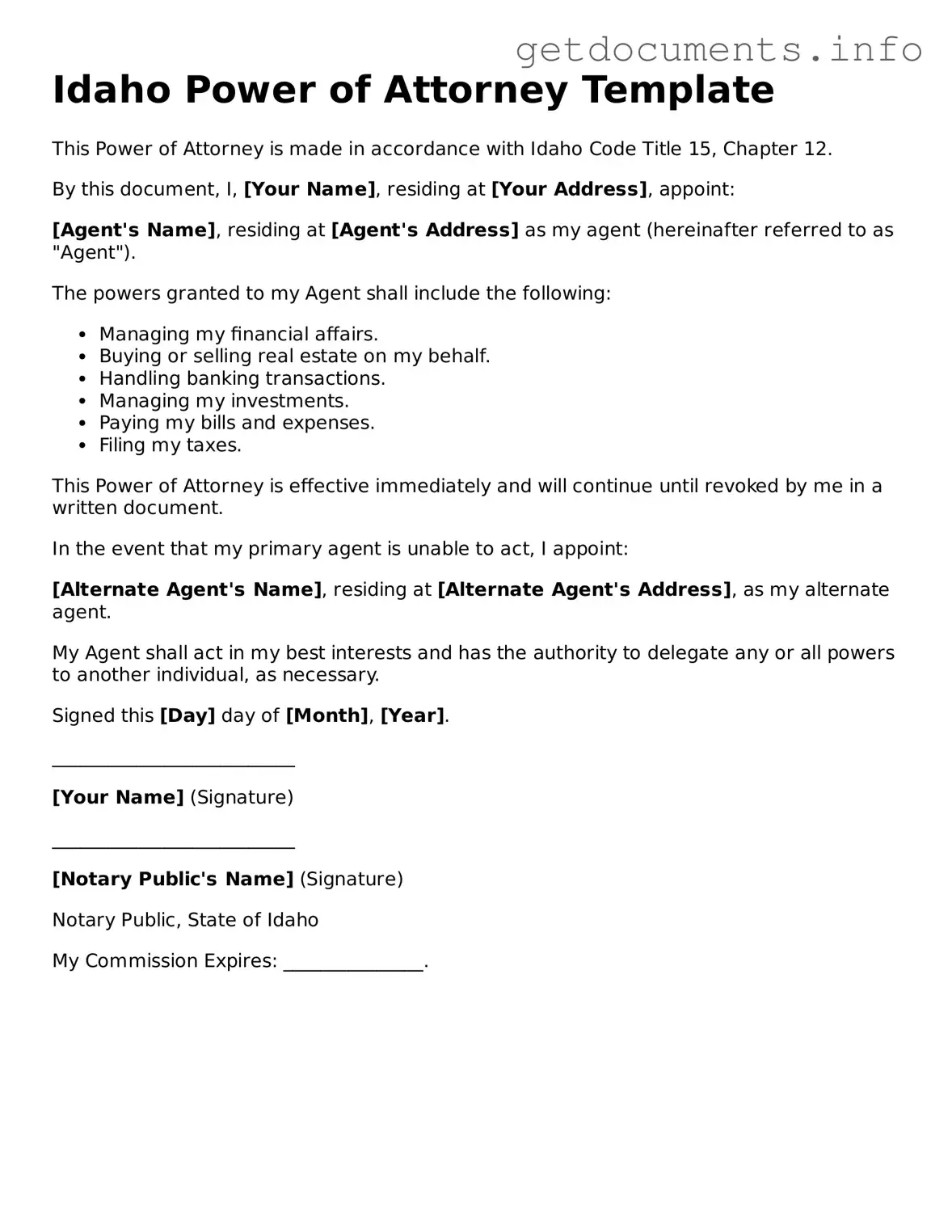Free Power of Attorney Template for Idaho
The Idaho Power of Attorney form is a legal document that allows one person to grant another the authority to make decisions on their behalf. This can include financial matters, medical decisions, or other important choices when the individual is unable to act for themselves. Understanding how to properly fill out and use this form is essential for ensuring that your wishes are respected.
Ready to take control of your decisions? Fill out the form by clicking the button below!
Access Power of Attorney Editor

Free Power of Attorney Template for Idaho
Access Power of Attorney Editor
Got places to be? Complete the form fast
Fill out Power of Attorney online and avoid printing or scanning.
Access Power of Attorney Editor
or
⇩ PDF File
